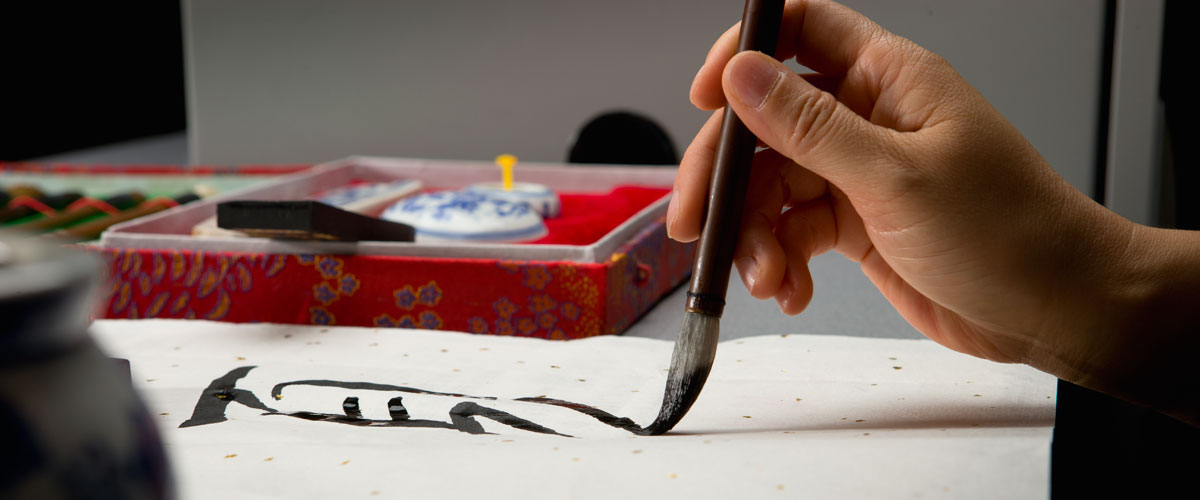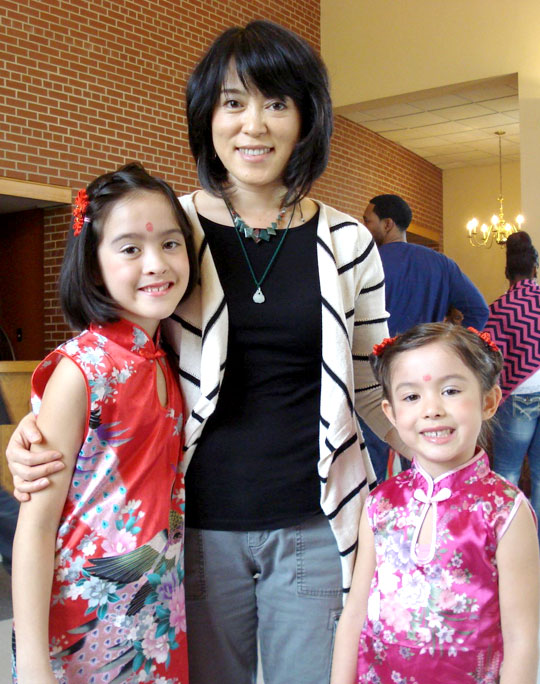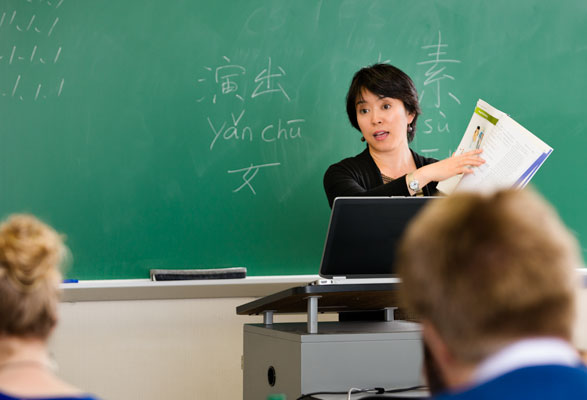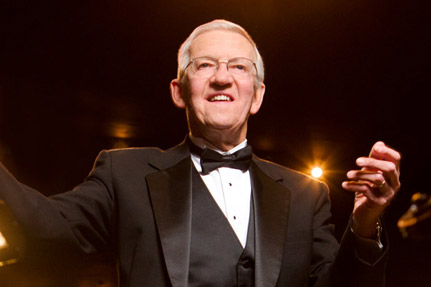In Their Heart Language: Ying Leach

Ying was born in the early 1970s in the northern Chinese city of Benxi—a small city by Chinese standards, with fewer than a million people at the time. She was a surprise addition to her family, with a 12-year gap between her and her closest sibling. The gap meant more than age though—it was a gap of experience and of opportunity.
Hard Times
Ying’s siblings grew up under Mao Ze-dong, during the “Great Leap Forward” and the Cultural Revolution, both periods of chaotic economic and social upheaval. Untold millions lost their lives through droughts and floods, hard labor and imprisonment, famine and starvation, as well as through uprisings of students and workers against teachers and other intellectuals.
Ying’s brother had just finished middle school when schools and universities across China were closed. He and many other young people were sent away from their homes to labor in the countryside. He wouldn’t have the chance to complete his high school education until many years later, when he was married and in his 30s.
Every Opportunity
With Mao’s death in 1976, the Cultural Revolution died as well. New leaders came to power, schools and universities were reopened, and China began to stabilize. It was in this environment that Ying grew up.
Although Ying’s parents were illiterate, they provided every opportunity for Ying to learn. “They supported me very much, buying books and investing all they could to help me to study more,” Ying says. “I was taught, I understood that learning is important. And once it clicked, I enjoyed learning.” She soon decided that she wanted to be a teacher.
As a chef, Ying’s father worked in hotels in China, as well as in Chinese embassies overseas. “When I was a little girl, I visited him in the hotels quite a few times and met foreigners who spoke English to me,” Ying remembers. “I thought that English was so beautiful and I really wanted to understand!”
While Ying was still in elementary school, her father went to work for the Chinese embassy in the Congo for three years. His experience there encouraged her love of languages even more. “He asked the translator there to write letters home, because he couldn’t write,” Ying says. “And he told me how much he appreciated the job, to be able to translate for others and bring people together who normally could not communicate.”
At the time, schools didn’t provide English classes until middle school. Knowing how much Ying wanted to learn English, her mother found a young teacher who was teaching a private English class. “I loved it!” Ying says. “I memorized every single lesson; I read it again and again at home, out loud.” Her mother also began buying English books and their accompanying cassette tapes, so that she could practice through imitation.

Under Pressure
As much as Ying loved learning, she could not escape the pressure of the educational system. Competition was fierce, even in the small city where Ying lived. “There are only two upper secondary schools, and each school, each year, only accepts 400 students,” Ying explains. “So the majority of students either join the military or go to a vocational school or take on a job.” Ying was accepted into an upper secondary school, but soon faced another hurdle: college entrance exams.
“We called it Black July, because of the pressure,” Ying says. After exam results were out, universities chose students on the basis of their grades. Ying was accepted into Bohai University—and into the English education program. “I was very blessed,” she says. “Not many people in China can study what they really want, because the majors depend on your grades as well.”
American … and Christian
College was a life-changing experience, both educationally and spiritually. During her final year in college, she met American teachers who not only helped her English, but also introduced her to Christianity.
These Christian teachers were a young married couple named Dave and Michelle, just a few years older than Ying. The first thing she noticed about them was their demeanor.
“They were just different,” Ying recalls. “Michelle always had this great smile. So I asked her, ‘Michelle, don’t you have any hard things to deal with? Don’t you ever feel blue and sad?’ She said, ‘Oh, I was very cranky, especially during my teenage years, but Jesus changed my life.’ When I heard that, I said, ‘Stop!’ because I didn’t want to hear that.”
Ying was also impressed by Michelle’s intelligence. “We gave her Chinese riddles and she always solved all of them,” Ying recalls. “I thought, ‘She is so smart, how can she believe in Jesus, a fairytale?’”

Three Burning Questions
Communism, of course, promoted atheism. Ying had learned in school that there was no god and that humans had evolved from apes. “In order to get higher grades, I knew what answers to put down,” says Ying. “But really, I didn’t believe that. I kind of laughed at those ideas.”
Technically her parents were atheists. In practice, though, they could not seem to give up the old traditions of burning fake money and putting out food for their dead relatives to use in the afterlife. So which was the truth?
“In my heart,” Ying says, “mainly three questions bothered me: where am I from? why am I here? where am I going?”
Ying wasn’t ready to believe the Bible’s answers to these questions just yet. But God was working.
“Scripture started to talk to me!”
Ying went on to pursue a master’s degree in applied linguistics at Dalian Maritime University in the bustling port of Dalian, several hours away from her home city.
Her very first semester, she met a Christian teacher from Texas named Laura. “That was the second time I heard the gospel very clearly,” Ying says. “‘Laura Mom’ actually drew the picture, the bridge, to explain the gospel to me.”
That Christmas, Ying read through the gospel of John twice. The first time she couldn’t understand it at all. “You know, I studied a lot of textbooks. But when I opened the Bible, and I was reading both English and Chinese—I mean I could understand every single word, but it did not make sense to me,” she says. “It was so muddled! There was something blocking me.”
She went to another Christian teacher on campus for advice. “She told me that all the other books were written by man, except the Bible. That was written by God. And God despises a proud heart,” Ying remembers. “If you can’t understand, you have to ask God. That’s when I started to pray, ‘If there is a true God, please help me to read this book! Help me to understand it!’”
God answered her prayer. “When I started to read the book of John again, the Scripture started to talk to me!” Ying says. “I realized it is all about Jesus, and I realized Jesus is God. He is man, but He is God as well. That’s when I started to realize that Jesus is not a fairytale, Jesus is real. And if He is real, if He is the true God, then I need to follow Jesus.”

Growth in Christ
Ying immediately got involved in a house church. As a port city, Dalian was more open to outside influences and more friendly toward religion in general. Although the church was not registered, “we worshiped and did our gatherings pretty openly. Most of the neighbors knew we were there, and many of them joined us,” Ying says.
In addition to her church, God led Ying to a Korean pastor and his family that had come to minister in Dalian. “Pastor Ha is very athletic, so he posted an advertisement and taught tennis on campus. That’s how we met,” Ying says. “Many people heard the gospel through Pastor Ha’s ministry there. He did training and discipleship, and taught us how to study God’s Word on our own and how to share the gospel.”
When Ying’s mother passed away, very soon after Ying had become a Christian, her house church friends and the Ha family were a wonderful encouragement to her. Even Laura Mom, though no longer at the university, gave Ying her phone number to call collect and prayed for her daily.

Needed: Chinese Teacher
When Ying graduated with her master’s degree in 2001, Laura Mom invited her to visit Texas for the summer—another opportunity that God would use to completely change the course of Ying’s life. While in Texas, Ying learned that Bob Jones University needed a Chinese teacher. The next thing she knew, Laura Mom was talking to the dean at BJU about a job for Ying!
That fall Ying began teaching Chinese and earning an MEd in English at the same time. “As a young believer, I knew I had so much to learn,” she says, “That’s why I got a GA position, so I could take more classes.”
She continued to grow by leaps and bounds. “I saw the Christian joy—that was just really wonderful,” she says. “Because it was a Christian campus, even though there were culture shocks here and there, all these shocks were more funny to me, rather than obstacles. With all the brothers and sisters’ help and prayers, those things were minor.”
She soon met her future husband, also a GA at the time. He was involved with a campus ministry at Clemson University that included many Chinese students. “He introduced me to his Chinese friends,” Ying says, “because at that time he had more Chinese friends than I did!”
They began dating after a couple years and were married in 2004. Since then God has blessed them with two beautiful daughters.
A Bigger Vision
Ying continues to teach elementary and intermediate Chinese at BJU. In addition to the four semesters she teaches, she’s excited about a recent agreement with Beijing Language and Culture University to provide two online summer courses—taught through video conference call by professors from Beijing—for BJU students who want to advance their Chinese skills even further.
Ying’s vision is bigger than the classroom though. Bible verses, prayer and Christian songs are an important part of her Chinese curriculum for a reason. She would love nothing more than to see her students using their Chinese skills to minister in China.

Theology, Education and Missions
“When I was taking Systematic Theology, I was just amazed to see the depth and the richness of theology studies in this country,” she exclaims—theology studies that the vast majority of Chinese Christians don’t have access to.
“China needs teaching more than anything else, especially theology and doctrinal teaching. A lot of believers growing really, really fast are in the villages. But you know, these Christians have very little education. That’s why they go to the extremes,” she explains. “And then our background, all the baggage of superstition. They just fall into sad situations because they can’t feed on the Word on their own very well.”
Christian education and missions are growing needs as well. “Chinese Christians want their children to know God, so they start to think about Christian education. This is a new movement—even homeschool. It’s amazing!” she says.
“They are thinking about missions too. They have been going to Arabic countries, like Iraq, because they welcome Chinese people. But many of them return quickly, because they have no training in this area. But again, America has a long history of sending missionaries to China and many other countries. You have so much that you can share with Chinese brothers and sisters.”
Precious Opportunities
Ying looks at her students and sees opportunity: first, the lifelong opportunity that God has given them to learn from the Bible, and now, the opportunity that knowing the Chinese language gives them. “I really pray that God will give more American brothers and sisters the desire to master the language,” Ying says, “to use the heart language to minister to the Chinese people.”
